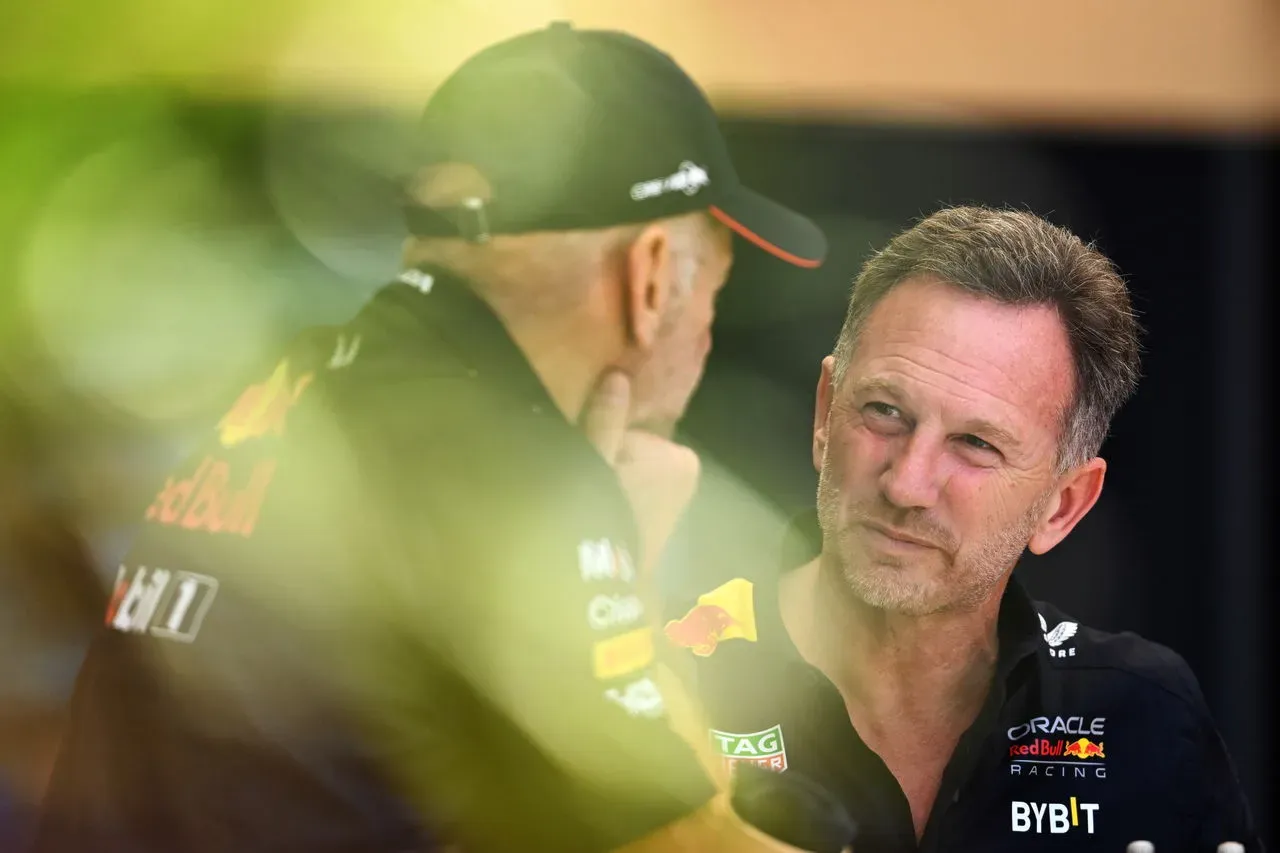The recent news of Christian Horner’s departure from Red Bull Racing marks a significant turning point in F1 team management, stirring excitement and speculation within the paddock. After more than two decades at the helm, Horner’s exit follows not only disappointing performances but also the looming shadow of Max Verstappen transfer rumors as the young Dutch champion contemplates his future amidst a fraying relationship with the team. Laurent Mekies has been appointed as the new team principal, bringing fresh leadership from within the Red Bull galaxy to keep the team competitive. Horner’s legacy in F1 is substantial, boasting numerous championships and victories, yet the mounting pressures of recent seasons have led to his unexpected departure. As the F1 community absorbs this seismic change, all eyes are now on Mekies to navigate the upcoming challenges and restore Red Bull Racing to its former glory in the face of fierce competition.
With the end of an era in F1 team leadership, Christian Horner’s exit from Red Bull signifies a transformative phase for the prominent racing squad. Over the years, Horner has been synonymous with Red Bull’s rise to the top, and his removal amid fluctuating results raises critical questions about the future direction of the team. Bringing in Laurent Mekies, previously of the Racing Bulls, represents a strategic shift aimed at reinvigorating the squad as it grapples with increasing pressures and a significantly altered competitive landscape. This moment not only impacts team dynamics but also reverberates through the larger F1 community, especially with the air of uncertainty surrounding the potential departures of key figures like Max Verstappen. As fans and analysts alike watch closely, the unfolding drama within Red Bull Racing could redefine the team’s status and approach in the fast-paced world of Formula 1.
Christian Horner Departure: A Turbulent Shift in Red Bull Racing Management
The recent departure of Christian Horner from his role as director of Red Bull Racing marks a significant shift in the landscape of F1 team management. Having held the position since 2005, Horner’s tenure has been characterized by both incredible successes and notable controversies. The timing of his exit—amidst ongoing struggles for the team and increasing speculation about Max Verstappen’s future—has sent shockwaves through the paddock, leaving fans and insiders alike questioning the direction of Red Bull Racing moving forward.
As Horner transitions out, one cannot overlook the legacy he leaves behind. Under his leadership, Red Bull Racing achieved unparalleled success, including eight drivers’ championships and six constructors’ titles. His strategic vision and unyielding devotion to the team positioned Red Bull as a powerhouse in F1. However, with the team’s recent underperformance and Verstappen’s rumored interest in a switch to Mercedes, Horner’s departure raises questions about the internal dynamics at play and whether this change was necessary to stabilize and reinvigorate the team’s competitive edge.
The Rise of Laurent Mekies: Red Bull Racing’s New Direction
In the wake of Christian Horner’s departure, Laurent Mekies has stepped into the spotlight as the new face of Red Bull Racing. With an extensive background that includes pivotal roles at Ferrari and a deep-rooted history within the Red Bull organization, Mekies brings a wealth of experience to this critical juncture. His appointment is seen as a fresh start for the team, especially as they seek to rebuild after a disappointing season and retain top talent like Verstappen.
Mekies’ previous leadership of the Racing Bulls team and his successful stints at Toro Rosso poise him well to navigate the complexities of F1 team management. His strategic acumen will be crucial to addressing the issues that led to Red Bull’s decline in performance, particularly the alarming gap in points behind competitors like McLaren. As Mekies prepares to take charge at the Belgian GP, fans and analysts alike are eager to see how his leadership style and decision-making will influence the team’s trajectory in the coming races.
Max Verstappen Transfer Rumors Amidst Red Bull’s Leadership Changes
The departure of Christian Horner has intensified the swirling rumors regarding Max Verstappen’s potential move to Mercedes. The reigning world champion, under contract until 2028, has seen his relationship with the team come under strain, particularly following the ‘Horner affair’ that unveiled discomfort among the driver and team dynamics. As Red Bull Racing aims to stabilize its structure with Mekies at the helm, they face the uphill battle of convincing Verstappen that his future still lies with the team.
These developments come at a time when Verstappen’s performances have been the saving grace for Red Bull, overshadowing the team’s lackluster results in the constructors’ standings. Insiders believe that maintaining Verstappen’s loyalty will require a concerted effort to improve team performance and resolve internal tensions. As the F1 world watches closely, Red Bull must navigate these turbulent waters carefully to ensure they don’t lose their star driver amid a leadership overhaul.
The Legacy of Christian Horner in Formula 1
Reflecting on Horner’s time at Red Bull, it becomes evident that he has played a pivotal role in shaping the F1 landscape. With a remarkable record of accomplishments, including multiple championships and dominant race performances, Horner’s legacy is firmly entrenched in the history of the sport. His ability to attract talent, coupled with innovative strategies, has redefined team dynamics within F1, often setting benchmarks for others to follow.
However, Horner’s legacy is not without its controversies. His management style and public comments have occasionally ruffled feathers within the paddock, leading to high-profile conflicts and media scrutiny. As the team embarks on a new chapter, the question of how Horner’s influence will echo in the coming seasons remains pivotal. It serves as a reminder of the delicate balance between achieving success and maintaining harmonies within the pressures of elite motorsports.
Red Bull Racing’s Future: Challenges and Opportunities
With the departure of Christian Horner, Red Bull Racing stands at a crossroads filled with both challenges and opportunities. The new management under Laurent Mekies must quickly identify strategies to reclaim their status as one of the top teams in F1. This involves addressing performance issues, fostering a strong team culture, and meeting the expectations of their star driver, Max Verstappen, who has been pivotal to their past successes.
Moreover, the competitive landscape in F1 continues to evolve, with rival teams like McLaren gaining momentum. For Red Bull, the challenge lies in adapting swiftly to these dynamics while ensuring they maintain their edge in innovation and technology. The upcoming races will be crucial for Mekies to implement changes and demonstrate a renewed vision for Red Bull Racing, one that asserts their dominance in Formula 1 once again.
The Impact of Recent Performance on Team Dynamics
Red Bull Racing’s recent downturn in performance has significantly impacted the team’s dynamics, leading to heightened internal tensions and ultimately, the departure of Christian Horner. Once regarded as a dominant force in F1, the team’s struggle to keep pace with competitors has raised serious concerns about its management and operational strategies. This decline has not only affected team morale but has also sparked anxiety amongst fans and sponsors who expect excellence from a historically strong team.
The consequences of this performance dip also extend to team relationships, particularly between Verstappen and Horner. With the team consistently trailing in constructors’ points, the pressure has mounted on both the driver and management to find solutions. As Mekies takes the reins, navigating the delicate relationships within the team and addressing performance issues is essential to restore the public’s faith and reaffirm Red Bull Racing’s place at the top of Formula 1.
Analyzing the Horner Affair and Its Aftermath
The so-called ‘Horner affair’, characterized by the allegations against Christian Horner, has cast a long shadow over Red Bull Racing in recent years. Although he was cleared after an internal investigation, the incident unveiled underlying tensions that had been brewing between him and key figures, including Max Verstappen. Such incidents not only affect the public image of the team but also complicate internal relationships, as drivers and management must navigate the fallout while maintaining their focus on performance.
As Red Bull transitions to new management, the repercussions of the Horner affair will likely influence the team’s dynamics for some time. Laurent Mekies must address the remnants of this controversy and work to rebuild trust within the team. Establishing open communication and a supportive environment will be essential for fostering unity and driving forward as they strive to regain their competitive edge in Formula 1.
The Implications of Red Bull’s Leadership Change for F1
The leadership change at Red Bull Racing is poised to have significant implications for the broader F1 landscape. With Laurent Mekies stepping in, other teams will be keenly observing how his strategies differ from those of Christian Horner. This transition signifies a potential pivot point not just for Red Bull but for rival teams who may see opportunities to capitalize on the change and the ensuing period of adjustment.
Moreover, the evolving dynamics within Red Bull, including the fate of drivers like Verstappen, will heavily influence the competition moving forward. As Mekies implements his vision and strategy, the ripple effects could reshape team alliances, driver movements, and even manufacturer partnerships within the sport. The coming seasons post-Horner will certainly be fascinating as a new era unfolds at Red Bull Racing.
Fan Reactions and Perceptions of the Red Bull Team Changes
The departure of Christian Horner has provoked a mixed bag of reactions among fans of Red Bull Racing. While some celebrate the change as a necessary step towards revitalizing a struggling team, others express concern about the uncertainty that accompanies Mekies’ leadership. The impact of Horner’s exit on team culture and performance is a hot topic of debate in various F1 fan communities, with many eager to see how Mekies will navigate these challenges.
Fan perception will be crucial in the coming months; as Verstappen’s status remains pivotal, supporters will be looking for signs of improvement and cohesiveness within the team. Engaging fans through transparent communication about the direction Red Bull is taking under new leadership could foster goodwill and confidence. Ultimately, how the team addresses these changes and reconnects with its fanbase will significantly influence its success in regaining its status as a powerhouse in Formula 1.
Frequently Asked Questions
What led to Christian Horner’s departure from Red Bull Racing?
Christian Horner’s departure from Red Bull Racing was prompted by disappointing team results and speculation regarding Max Verstappen’s potential move to Mercedes. Additionally, internal tensions, particularly following a past allegation against Horner, exacerbated the situation, leading to his exit after 20 years.
How will Christian Horner’s departure impact F1 team management at Red Bull?
Horner’s departure marks a significant shift in F1 team management at Red Bull. It opens avenues for new leadership under Laurent Mekies, who is tasked with revitalizing the team’s performance and addressing the challenges posed by Verstappen’s rumored transfer to Mercedes.
Did Christian Horner’s leadership contribute to Max Verstappen’s success?
Yes, Christian Horner’s leadership was instrumental in Max Verstappen’s success, securing four Drivers’ Championships during his tenure. However, the evolving dynamics between them and the team’s recent struggles have led to speculation about Verstappen’s future and the team’s direction after Horner’s exit.
Who will succeed Christian Horner after his departure from Red Bull Racing?
Laurent Mekies, formerly the director of the Racing Bulls team, will succeed Christian Horner as the new principal of Red Bull Racing. Mekies brings experience from his time at Ferrari and has been part of the Red Bull organization for nearly a decade.
What legacy does Christian Horner leave behind in F1?
Christian Horner leaves a remarkable legacy in F1, highlighted by eight Drivers’ Championships and six Constructors’ Championships during his 20-year leadership at Red Bull Racing. His innovative strategies and management style contributed significantly to Red Bull’s rise as a dominant force in the sport.
How does Horner’s departure affect the future of Red Bull Racing?
Horner’s departure creates uncertainty about Red Bull Racing’s future direction, particularly as it pertains to maintaining competitiveness in F1 and the status of star driver Max Verstappen. New leadership under Mekies will be critical to addressing performance issues and retaining top talent.
What were the circumstances surrounding the ‘Horner affair’ that preceded his departure?
The ‘Horner affair’ stemmed from sexual harassment allegations made against Christian Horner by a team employee in February 2024. Although Horner was cleared after an internal investigation, the incident highlighted existing tensions, particularly with Verstappen, and contributed to his eventual departure.
What challenges will Laurent Mekies face as the new principal of Red Bull Racing?
Laurent Mekies will face significant challenges as the new principal of Red Bull Racing, including improving team performance, managing driver relations, particularly with the contentious issues surrounding Max Verstappen, and ensuring the team remains competitive in an evolving F1 landscape.
How has Red Bull Racing responded to Christian Horner’s departure?
Red Bull Racing has publicly expressed gratitude for Christian Horner’s contributions over the past two decades, emphasizing his role in transforming the team into a top competitor in F1. The focus now shifts to Laurent Mekies, who is expected to bring fresh perspectives to the team’s management.
Are there ongoing rumors about Max Verstappen’s future following Horner’s exit?
Yes, ongoing rumors suggest that Max Verstappen may consider a move to Mercedes, especially given the tensions that have surfaced during Horner’s leadership. His future will likely be influenced by how effectively the new management can address team dynamics and performance issues.
| Key Point | Details |
|---|---|
| Christian Horner’s Departure | Horner was relieved of his duties as Red Bull F1 team director on July 9, 2025, after a long tenure dating back to 2005. |
| Impact on Red Bull | Red Bull has been underperforming, currently 4th in constructors’ standings, creating tensions leading to Horner’s dismissal. |
| Relationship with Max Verstappen | Rumors suggest Verstappen’s potential move to Mercedes influenced Horner’s departure, amidst a deteriorating relationship. |
| Success during Tenure | Horner achieved 8 drivers’ championships and 6 constructors’ titles, leaving a significant legacy in F1. |
| New Leadership | Laurent Mekies succeeds Horner as team director, previously led the Racing Bulls team and has a history within Red Bull. |
Summary
Christian Horner’s departure marks a significant turning point for Red Bull Racing. After two decades of leadership, Horner has been a key figure in shaping the team’s success, but ongoing performance issues and tensions within the team, particularly with star driver Max Verstappen, led to his dismissal. This change signifies Red Bull’s effort to stabilize its performance and retain its top talent as they navigate a challenging phase in Formula 1.



